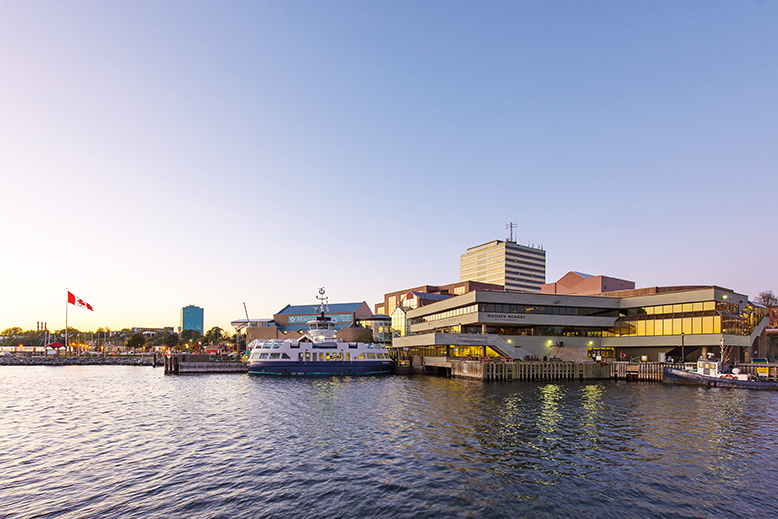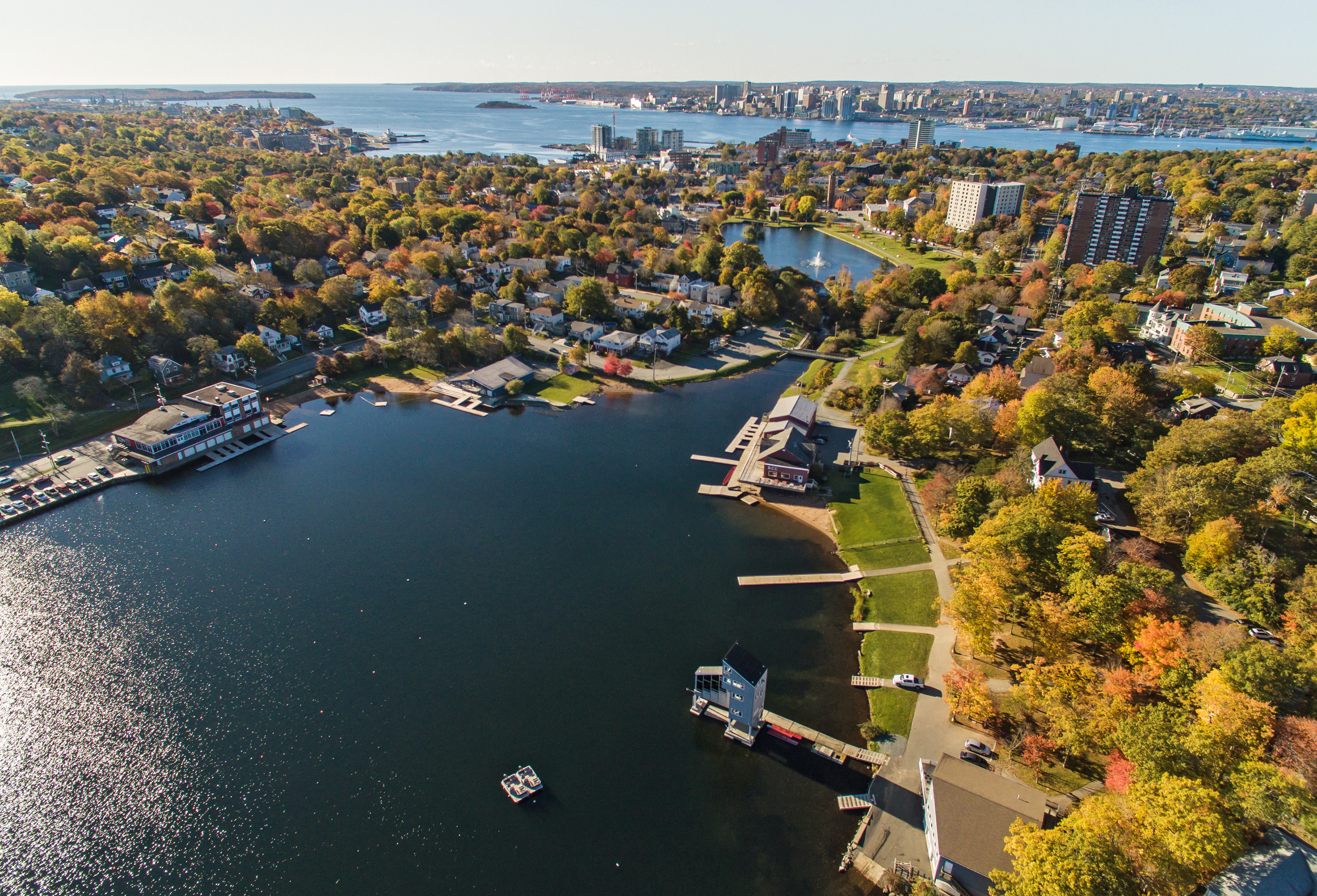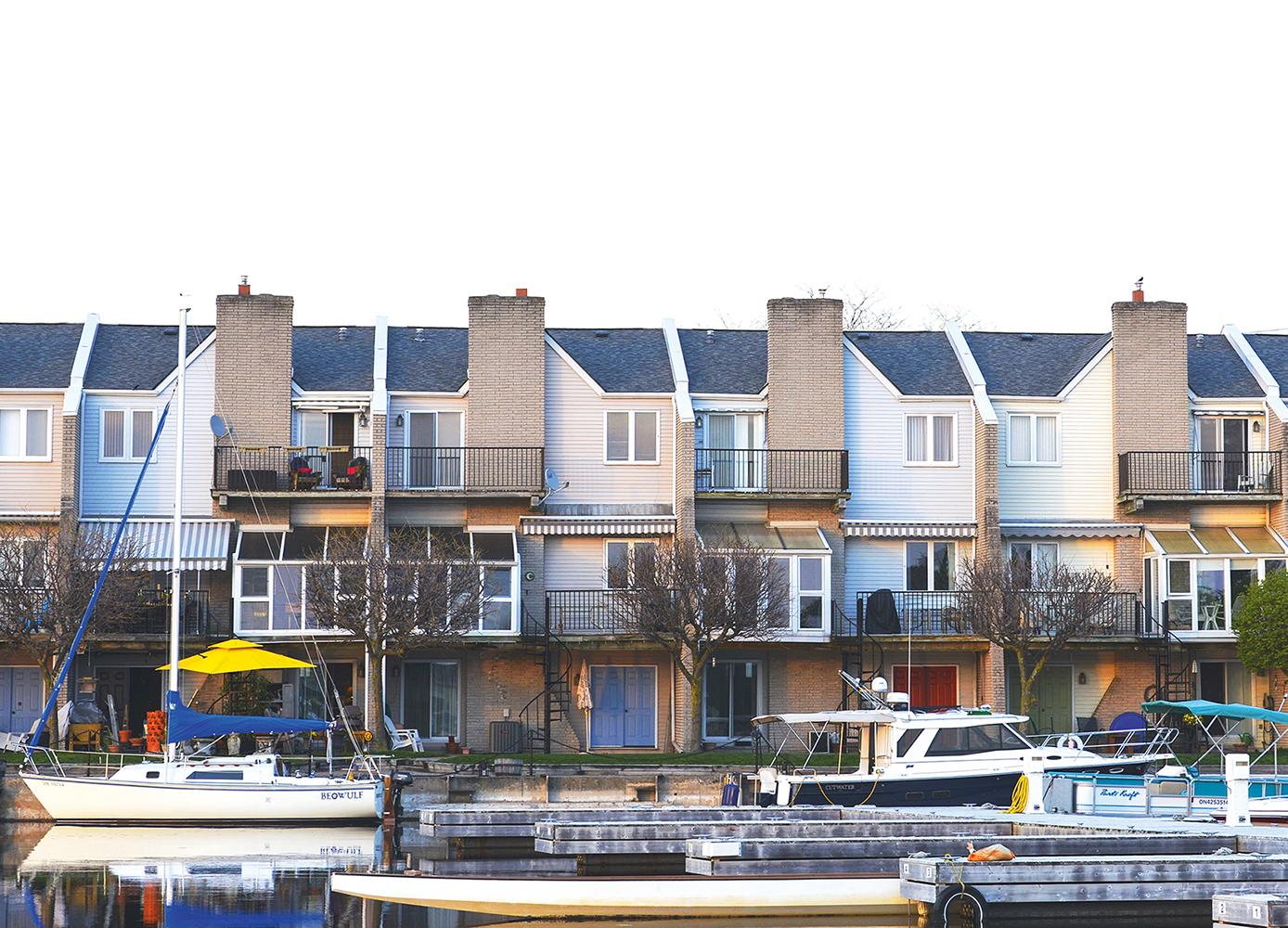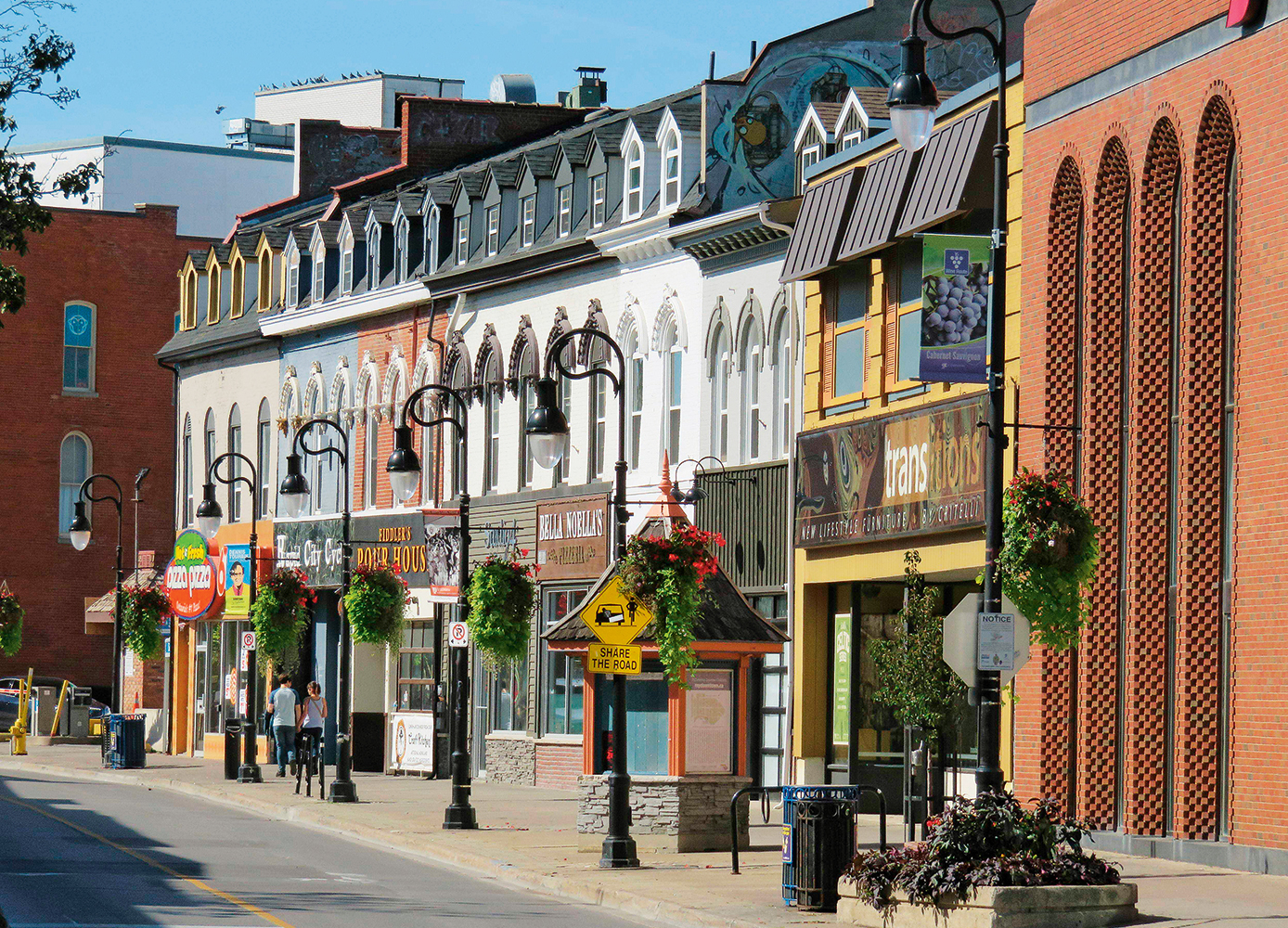Part of the Halifax Regional Municipality, Canada’s City of Lakes has a character of its own
By Wendy Haaf
Lake Banook (foreground), Sullivan’s Pond, and Halifax Harbour.Photo: Flitelab/Mark Langille.
Once dismissed by some as a bedroom community and shopping district for its larger, more cosmopolitan sister settlement across the harbour, Dartmouth, NS, has long been an affordable, open-armed community with ready access to lakes, parks, and beaches. Today, however, with its growing selection of hip watering holes and eateries, distinct neighbourhoods, and amenities such as Alderney Landing—a cultural hub that houses a live theatre, library, art gallery, and year-round Saturday farmers’ market—it’s an even more desirable place to live than ever. And then of course, there’s the glorious view: McNabs Island, Georges Island, and the skyline of downtown Halifax, which is just a ferry ride away.
Set on the eastern shore of Halifax Harbour, Dartmouth was home to the Mi’kmaq for thousands of years before British fortifications were erected there in 1750. A former city now technically part of the Halifax Regional Municipality, Dartmouth (population: approximately 93,000) is nonetheless still known as Canada’s City of Lakes for the 24 bodies of water within its boundaries and retains a character of its own, being small enough that you regularly run into people you know.
Indeed, the lakes and their surroundings are one of Dartmouth’s greatest assets, from Shubie Park—acres of forest bracketed by beaches—to Lake Banook, a world-class paddling site.

Alderney Landing.
Photo: Destination Canada (Alderney Landing).
“There are lots of trails because of the lakes,” says Margaret Ann McHugh, a former Torontonian who moved to Dartmouth in 2006 and retired a few years ago. These paths, many of which are multi-purpose, provide opportunities for dog-walking, cycling, snowshoeing, Nordic pole-walking, and simply strolling. “It’s been acknowledged that in these areas, there should be benches every once in a while so you can have a seat,” says Kim Stewart, a real estate agent who lives and works in Dartmouth.
For those who love the sea, “there are pristine ocean beaches 20 minutes away up the eastern shore,” says Dave Harrison, the treasurer of Destination Dartmouth, a grassroots group that promotes the community. Lawrencetown Beach Provincial Park, for example, draws surfers from all over.
“It takes no time to get anywhere—to get out in the middle of nature, go paddling, or go golfing right downtown,” Stewart says.
Dartmouth has multiple options for indoor recreation, too, including the newly refurbished Zatzman Sportsplex, which has facilities and classes for everything from racquet sports, walking, and skating to weightlifting, as well as stellar accessibility features, such as a lift and specialized wheelchairs for transferring into the pool. “They’ve really gone out of their way to make sure it’s inclusive,” says McHugh, who toured the facility in one of her volunteer roles. A handful of community centres also offer activities such as yoga and pickleball.
On the arts and culture front, “there’s an amateur theatre group—Dartmouth Players,” McHugh says, as well as a children’s theatre troupe, public murals and sculptures, and live music at venues such as the bandshell at Sullivan’s Pond, which features concerts in the summer. “The Dartmouth North Community Food Centre just did a community play called Stone Soup” that went from door to door through the neighbourhood, McHugh says. “I just loved it.” And Seaside FM, a largely volunteer-operated not-for-profit community radio station in next-door Eastern Passage, hosts events such as community dances in addition
to providing a constant flow of helpful information for the over-50 crowd.
In addition, McHugh says, “Dartmouth has lots of fabulous, well-reviewed restaurants,” as well as a growing roster of hip (but still welcoming) bars, craft breweries and cideries, taprooms, and cozy independent coffee shops. A number are located in the thriving, walkable downtown, which is just one of five shopping districts—Mic Mac Mall and Burnside industrial park (whose tenants include Ikea and Costco) are two others.
Less exciting but equally important elements include reasonable real estate prices and a well-regarded general hospital with ER waiting times shorter than those across the harbour.
“Acute health care is good,” McHugh says. “If you have a heart attack or car accident, you’re going to get quickly where you need to be.”
Primary care is a bit more of a problem, due to a provincewide shortage of family physicians; there’s a waiting list of patients requiring one. The situation is improving, however, according to Barb Johnson of Doctors Nova Scotia. While 3,400 of the 116,500 people (2.9 per cent of the population) in the Dartmouth/Southeastern health zone still lack a GP thanks to an active recruitment program, at least six new family doctors had taken 10,000 patients out of the queue as of November 2019. Nevertheless, Johnson recommends that those contemplating a move “put their names on the Need a Family Practice registry” (needafamilypractice.nshealth.ca).
While the average selling price for a home in the Halifax/Dartmouth area in the first quarter of 2019 was roughly $319,000, that figure is inflated by comparatively much higher prices in peninsular Halifax. There is also a selection of condominiums and retirement homes in Dartmouth, too. On the downside, however, supply is low, though “there’s about to be a construction boom” comprising largely rental properties, Stewart says.
Perhaps most appealing to Stewart and McHugh, however, is the community spirit.
“You go to the Portland Street Crêperie on a Sunday afternoon in the summer, get a fresh waffle cone, and everybody’s talking with each other—kids, families, seniors, singles, and couples,” Stewart says. “We still say ‘Hi’ to each other on the street, which I love.”
“I feel a real sense of community,” along with a philosophy of looking after each other, McHugh says.
All in all, Dave Harrison concludes, “The area as a whole is just a wonderful place to live.”






